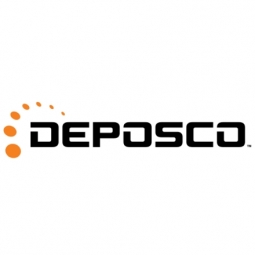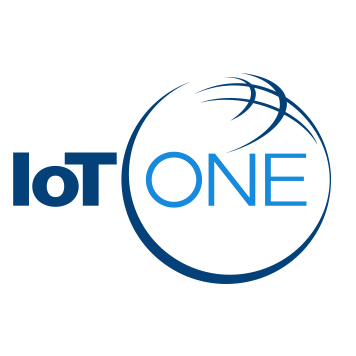Deposco

Overview
|
HQ Location
United States
|
Year Founded
2004
|
Company Type
Private
|
Revenue
$10-100m
|
|
Employees
51 - 200
|
Website
|
Twitter Handle
|
Company Description
Deposco operates as a retail, ecommerce, and 3PL firm with a focus on inventory management and movement. The company provides an omnichannel fulfilment solution that offers considerable insight into both the supply chains and the wider market.
IoT Snapshot
Deposco is a provider of Industrial IoT cloud planning, design and implementation services, system integration, and testing and certification services, and also active in the buildings, cement, e-commerce, electrical grids, marine and shipping, retail, and transportation industries.
Technologies
Use Cases
Functional Areas
Industries
Services
Technology Stack
Deposco’s Technology Stack maps Deposco’s participation in the IoT Technology stack.
-
Devices Layer
-
Edge Layer
-
Cloud Layer
-
Application Layer
-
Supporting Technologies
Technological Capability:
None
Minor
Moderate
Strong

Supplier missing?
Start adding your own!
Register with your work email and create a new supplier profile for your business.
Case Studies.
Case Study
RIM Logistics' Massive Growth with Deposco's IoT Solution
RIM Logistics, a leading 3PL provider since 1997, found itself on the brink of a technological precipice in 2017. The company was operating on outdated technology and was hesitant to transition to cloud-based solutions. However, the team recognized the need to upgrade their systems to retain and attract new customers. They needed more than just basic scanning capabilities; they needed a system that could offer flexibility, cloud technology, and accessibility from anywhere. The goal was to expand their customer base into the business-to-consumer (B2C) market, but they needed to find the right partner to make this leap.
Case Study
Power Design Resources Enhances Order Accuracy and Efficiency with Deposco
Power Design Resources, a national design-build multi-trade contractor based in St. Petersburg, Florida, was facing significant challenges with their inventory fulfillment process. Their existing ERP system was not providing the necessary data to monitor their operations or increase accuracy, leading to costly delays in construction schedules. The team often received reports of missing materials on site, with no way to verify if the entire order was dispatched. This lack of transparency and control over their inventory both inside and outside the warehouse was negatively impacting their overall revenue. They needed a more efficient and accurate solution to manage their operations and inventory.
Case Study
The Daily Grace Co. Boosts Growth with IoT Solution
The Daily Grace Co., an e-commerce seller of gospel-centered resources, was facing significant challenges in managing its inventory and fulfilling orders. Despite using two inventory tracking systems, the company was unable to keep up with its rapidly growing top-line revenue, which was doubling every year. The team had to manually put tickets into bins and conduct physical quality control checks on every order. Additionally, a dedicated role was required to research shipping rates for each order before it could be shipped. The company's two legacy systems were not integrating well with Shopify, leading to frequent loss of orders. The team was losing revenue and was only able to fulfill a maximum of 1,000 orders a day. It was clear that a more efficient warehouse management system (WMS) was needed.
Case Study
Total Life Changes Streamlines Operations with Deposco for Global Success
Total Life Changes, a rapidly growing dietary supplement company, was facing operational challenges due to the lack of an official system for order fulfillment. The company was relying on outdated paper and pencil processes, which made refilling stations and batch printing full-time jobs. The team was unable to send out partial shipments and had no established rules for international shipping, a significant part of their business. Furthermore, the company frequently promotes products with mega sales, causing orders to triple their normal daily volume. During these sales, the team had to work overtime and bring in extra people to fulfill orders. They needed a system that could handle these fluctuations but also work efficiently during times of normal volume.
Case Study
Fortress Building Products: Enhancing Fulfillment and Growth with Deposco
Fortress Building Products, a manufacturer of outdoor building materials, was struggling with an outdated, paper-based order fulfillment system. The process involved printing an order slip and manually walking it through the warehouse, which was inefficient and time-consuming. The system also lacked real-time tracking capabilities, meaning customers could not be notified about the status of their orders until they had been shipped. Furthermore, the absence of barcoding in the warehouse increased the risk of inventory count and order inaccuracies. These inefficiencies were hindering the company's growth and it became clear that a fully integrated warehouse management and fulfillment system was needed to improve operations, order tracking, accuracy, inventory count time, and accounting.
Case Study
Left Brain Logistics Enhances Efficiency and Visibility with Deposco
Left Brain Logistics, a third-party logistics company, was struggling with a rigid legacy system that was limiting their operations and growth. The system was inflexible, only allowing the team to use the features that were included in the box. Whenever they sought assistance, they felt like they were treated as an inconvenience rather than a valued customer or partner. This lack of support and system limitations led to a situation where they were unable to meet the needs of their customers. The situation escalated to the point where Left Brain Logistics had to turn away potential customers due to the limitations of their system. They realized the need for a more flexible solution that could accommodate their growth and provide a deeper level of control over their operations.



